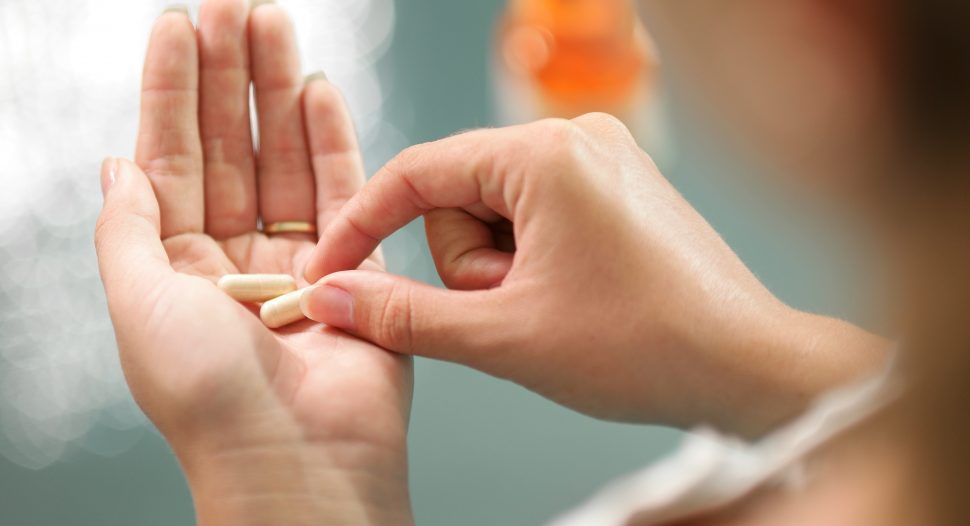Probiotics and prebiotics. You’ve probably heard about them; they sound similar, but benefit your health differently.
They do, however, have one thing in common — helping to maintain your gut health. The gut has many microorganisms, from bacteria, fungi to viruses. These microorganisms thrive in an ecosystem known as your microbiome¹ to help keep your gut health in balance.
Get to know the difference between probiotics and prebiotics, including their benefits to your microbiome and overall health!
What are probiotics?
Probiotics are live microorganisms that can be consumed through fermented foods or supplements². You can call them the “good” bacteria!
The most common strains are Lactobacillus and Bifidobacterium that support your digestive health
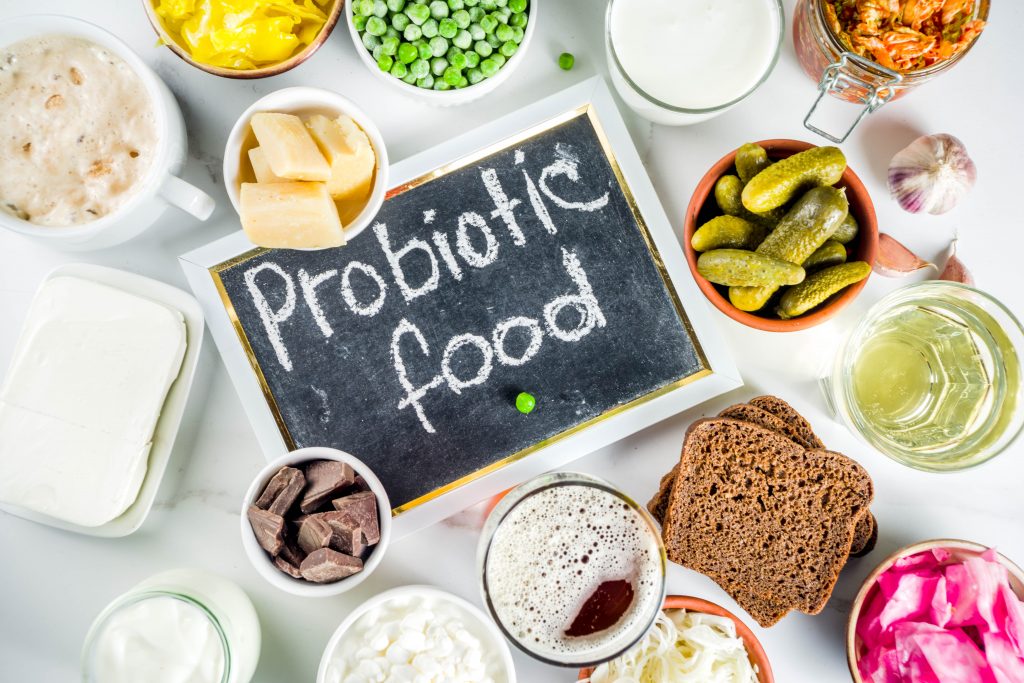
How do I consume more probiotics?
Kimchi and plain yoghurt with live active cultures are a great way to get a jump on your probiotic consumption.
Take care not to heat such yoghurts as any heat will kill off the good bacteria in it³. Other plant-based foods that are naturally rich in probiotics include miso, kombucha and even pickles⁴!
For the time-strapped, probiotics can also be taken as a supplement. Pills like capsules and tablets are usually designed to be swallowed. Probiotics vary in ingredients and form:
- Powders
- Liquids
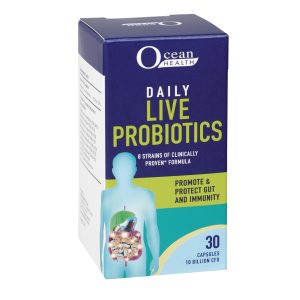
$23.52
(30% OFF)
UP: $33.60
Daily Live Probiotics
Capsule 30s
Ocean Health
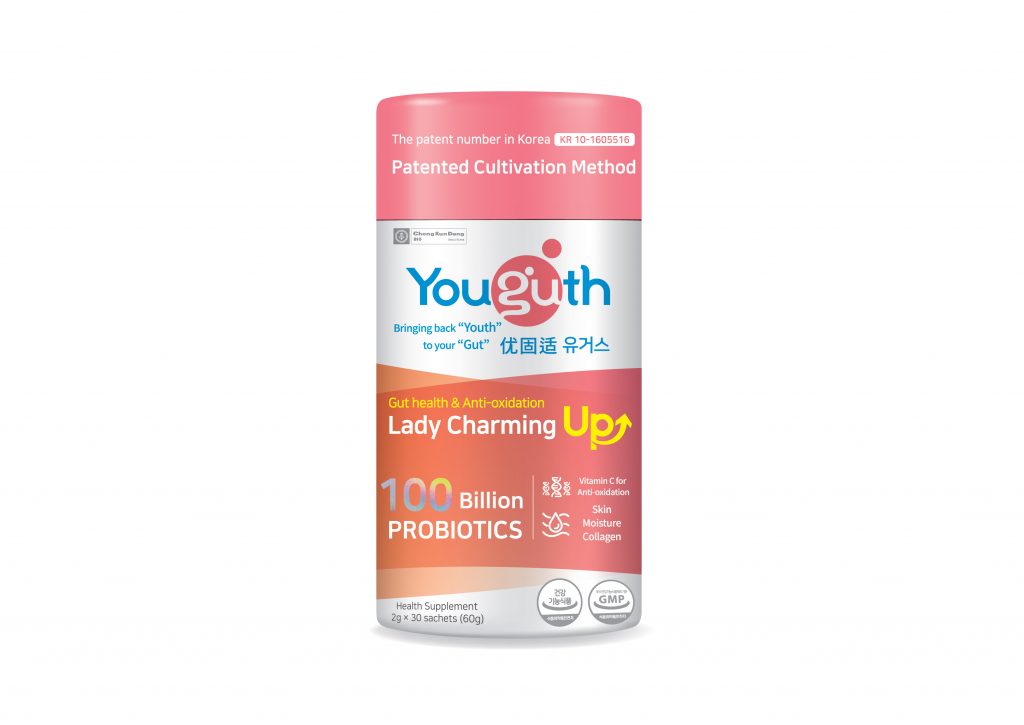
$41.25
UP: $55.00
Lady Charming Up
Sachet 30s
Youguth
Powdered forms can be easily mixed into your morning smoothie for a probiotic-packed punch. They may even be packed in small sachets for greater convenience and better gut health on the go!
Feasting a little too much this Mid-Autumn Festival? From mooncakes of every type and roasted duck to taro desserts, probiotics can help with any bloating and constipation woes!
What does CFU mean?
Probiotics are measured in colony-forming units (CFU) which shows how much live microorganisms are in each dose of probiotic supplements. The dosage varies depending on the need for taking the probiotics. Consult a licensed health professional on the best dosage for you.
Note: Always read the full list of ingredients closely to identify dairy, soy, wheat, fish, bovine, crustaceans and other potential allergens.
Also, always consult your child’s pediatrician before administering any probiotic supplement or tweaking their diet to include probiotic-rich foods.
What are prebiotics?
Prebiotics, on the other hand, are certain carbohydrates (mostly fibre) that the human body cannot digest⁵. They are food for the good bacteria, the probiotics, instead! Nowadays, you may even find that some processed foods are fortified with prebiotics such as inulin⁶.
Foods that are rich in prebiotic fibre include:
- Legumes (eg. chickpeas, black beans)
- Wholegrains (eg. oats, barley)
- Fruits (eg. bananas, berries)
- Garlic, leeks and even onions!
Can I take probiotics and prebiotics together?
Yes! Synbiotics are used to describe supplements that contain both probiotics and prebiotics. There are many readily available supplements that combine the best of both.
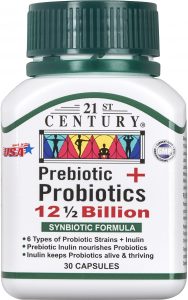
$14.90
UP: $19.90
Prebiotic + Probiotics Capsules
12 ½ billion 30s
21st Century
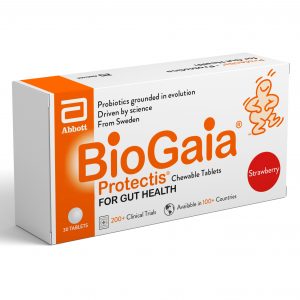
Get 2 for $82
UP: $45.90
Protectis Probiotic Chewable Tabs
Strawberry/Lemon 30s
BioGaia
All offers shown are valid from 26 August to 29 September 2021 at Unity stores.
We hope that you’ve learnt everything you need to know about probiotics and prebiotics! Whether you choose to consume them separately or together, remember that the dosage to achieve the desired effects does vary among individuals.
Head down to your nearest Unity store for all the best deals on your wellness essentials! The friendly in-store pharmacists are always ready to answer questions and assist you with making informed purchases.
***
References:
¹ Fedunik-Hofman, L 2021, The secret world of your microbiome, Australian Academy of Science, viewed 24 August 2021
² Brown, M.J 2016, 8 health benefits of probiotics, Healthline, viewed 24 August 2021
³ Hochwald, L 2020, How to eat more probiotics every day, Everyday Health, viewed 24 August 2021
⁴ Leonard, J 2018, The 10 best probiotics for vegans, Medical News Today, viewed 25 August 2021
⁵ Lewis, S 2020, Probiotics and prebiotics: what’s the difference?, Healthline, viewed 25 August 2021
⁶ Brissette, C 2019, Inulin is being added to a lot of food products. And that could be bothering your stomach., The Washington Post, viewed 26 August 2021
